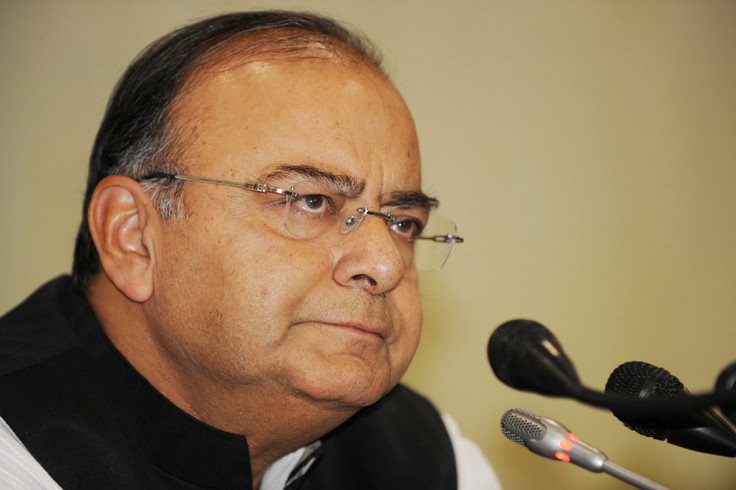India Markets Wrap: Rupee, Shares and Bonds End Weaker as Budget 2014 Fails to Offset Bad News From Portugal

Indian markets traded choppy around noon on Thursday reacting to the Budget speech but ended in the red by the end of the day as news of a funding crisis at the Portuguese bank Espirito Santa weakened risk sentiment globally.
Prime Minister Narendra Modi's maiden budget was expected to announce major reform measures but the document did not meet such expectations, analysts said.
At the same time, several initiatives announced in the budget are indeed in the right direction and therefore, overall it is not negative too, they added.
Stocks and the rupee that started the day firm anticipating bigger moves by Jaitley fell while the expenditure part was read and then rebounded as the minister explained his revenue plans.
However, negative news from a European bank was enough to decide the fate for the day.
Shares of Banco Espirito Santo plunged more than 14% on Thursday as the Portuguese central bank's word of guarantee after the bank's parent company missed debt paybacks failed to ease investor concerns.
Should the Portuguese situation worsen, market participants are worried it will trigger risk aversion contagion and affect the entire region, according to a Bloomberg report.
"Overall the budget provides nothing big in terms of a direction to the markets," K Chandrangathen, head of forex trading at South Indian Bank, told IBTimes UK.
"Rupee and shares moved up and down during the speech but have turned weak as the Portuguese news came," the Mumbai-based dealer said.
The BSE Sensex, India's main share index, ended at 25,372.75, down 72.06 points or 0.28%. USD/INR ended at 60.19, up about 0.74%. The pair had fallen to a low of 59.57 during the day.
The 10-year benchmark bond ended at the yield of 8.77% from the previous close of 8.73% and after falling to as low as 8.64%.
At 12:10 GMT, EUR/USD was 0.26% down at 1.3605. GBP/USD too was down 0.26%, at 1.7111, indicating the overall strength of the US dollar.
Difficult Targets
India's finance minister Arun Jaitley has accepted the fiscal deficit target set by the previous minister P Chidambaram in the interim budget.
"4.1% fiscal deficit a daunting task in the backdrop of two years of low GDP growth, static industrial growth, moderate increase in indirect taxes, subsidy burden and not so encouraging tax buoyancy," the Budget document said. 
"The government is committed to achieve this target. Road map for fiscal consolidation outlines fiscal deficit of 3.6% for 2015-16 and 3% for 2016-17."
Analysts are, however, sceptical about the likelihood of meeting the targets.
Here is some immediate reaction from Andrew Colquhoun, Head of Asia-Pacific Sovereigns Group, Fitch Ratings, to the Indian government's budget announcement today:
"Fitch is surprised that Arun Jaitley has stuck with the outgoing government's fiscal consolidation path. The agency is currently unsure how this can be met without further revenue-strengthening or expenditure-saving measures," he said in an e-mailed statement.
A Prasanna, the chief economist at ICICI Securities Primary Dealership, said all that was said in the document are the right things, but implementation is the key.
"The fiscal target set is good enough but I think it seems a bit difficult one to achieve," Prasanna told IBTimes UK.
© Copyright IBTimes 2025. All rights reserved.






















